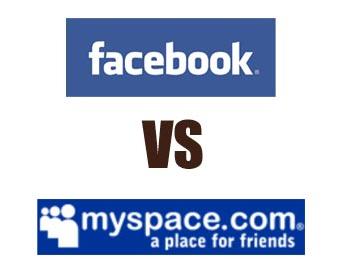As a 22 year-old member of Generation Y, I’ve witnessed the rise of social networking first hand. While I was never a member of Friendster or LiveJournal, I started with Xanga in the ninth grade. My feelings, rants, and adolescent ravings were posted on The Net for all to see, just like a good percentage of the rest of my ninth grade class. In the tenth grade I reluctantly advanced to this newfangled “MySpace” at the pressure of my friends. Around the time of my junior or senior year in high school, I started hearing things about “Facebook.” Of course, I couldn’t join. When I asked what it was, I was given the answer that it was “like MySpace, but for college kids only.”
Perhaps this is why Facebook won the war.
Like personified in 2010’s The Social Network, exclusivity is the reason people wanted to join Facebook. From the start, Facebook was about one select group of people: college kids. College kids are impulsive, impressionable, and most of all, conformist. I’m not saying every college student in the world wants to jump on the bandwagon, but it’s hard to resist doing so when all of your friends are jumping on as well.
What Facebook Did Right, That MySpace Didn’t
When a person starts up their Facebook account their profile is automatically set to “private” and nobody outside of the user’s selected friends can see information. On MySpace, a privacy option was available but all profiles were set up as public by default. The urge to see a person’s information and ultimately be accepted by them in to their select group of friends was what made Facebook have its massive social appeal.

Once I joined Facebook, something immediately caught my eye: simplicity. When I joined in 2007 there were very few features on the website compared to what is on the website today. The young social network was very minimal; it had a white background with a blue template, and black simple font. Compared to the customization-heavy MySpace, this was a great relief to my eyes and I’m sure many other users’ eyes also. MySpace allowed full customization, which allowed people who didn’t fully understand HTML and its limits to abuse the feature. MySpace pages were loaded with flashy (and flashing) backgrounds, glittery fonts, and animated .GIF’s. This was not only annoying to many users, but bogged down a page viewer’s computer resources and internet speed.
Facebook countered this by using a minimalistic style which let users’ eyes breathe and relax. The information was right in front of their eyes and no extra bulk was pushed on them in the form of flashy colors and images.
The site was new, appealed to a mass audience, and was “cool.” Everybody wanted one because everybody else wanted one, and only certain people could get it. Exclusivity is cool, and people want to be cool. It’s not the most technical way of explaining it, but it’s the best a 22 year-old a member of The MySpace Generation can explain it.
Janice Friend used Facebook to recently get in touch with a childhood friend in a small city in Ontario, Canada. She will move back there for a few months for work and Google d, “car insurance Alma Ontario” and hopefully will find legitimate rates.
 Tricks Window Technology Zone – Complete Technology Package for Technology News, Web Tricks, Blogging Tricks, SEO, Hacks, Network, Mobile Tricks, Android, Smartphones etc.
Tricks Window Technology Zone – Complete Technology Package for Technology News, Web Tricks, Blogging Tricks, SEO, Hacks, Network, Mobile Tricks, Android, Smartphones etc. 



Of course the same thing that happenned to Myspace can also happen to Facebook, considering how spammed it is today with customization.